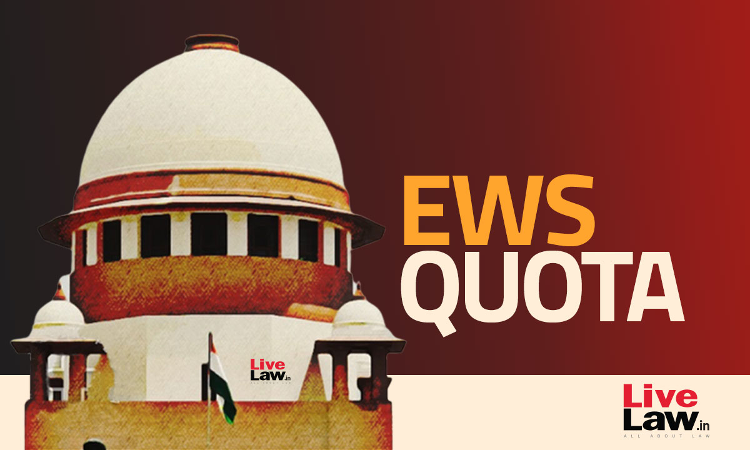EWS Quota Case : Supreme Court Constitution Bench To Hear 3 Issues Framed By Attorney General
Padmakshi Sharma
8 Sept 2022 7:21 PM IST

Next Story
8 Sept 2022 7:21 PM IST
The Supreme Court Constitution Bench, comprising Chief Justice of India UU Lalit, Justices Dinesh Maheshwari, S Ravindra Bhat, Bela M Trivedi and JB Pardiwala on Thursday, took up the the cases challenging the constitutional validity of reservation for Economically Weaker Sections. The bench decided that it will be proceeding apropos the three issues suggested by the Attorney General of India....
